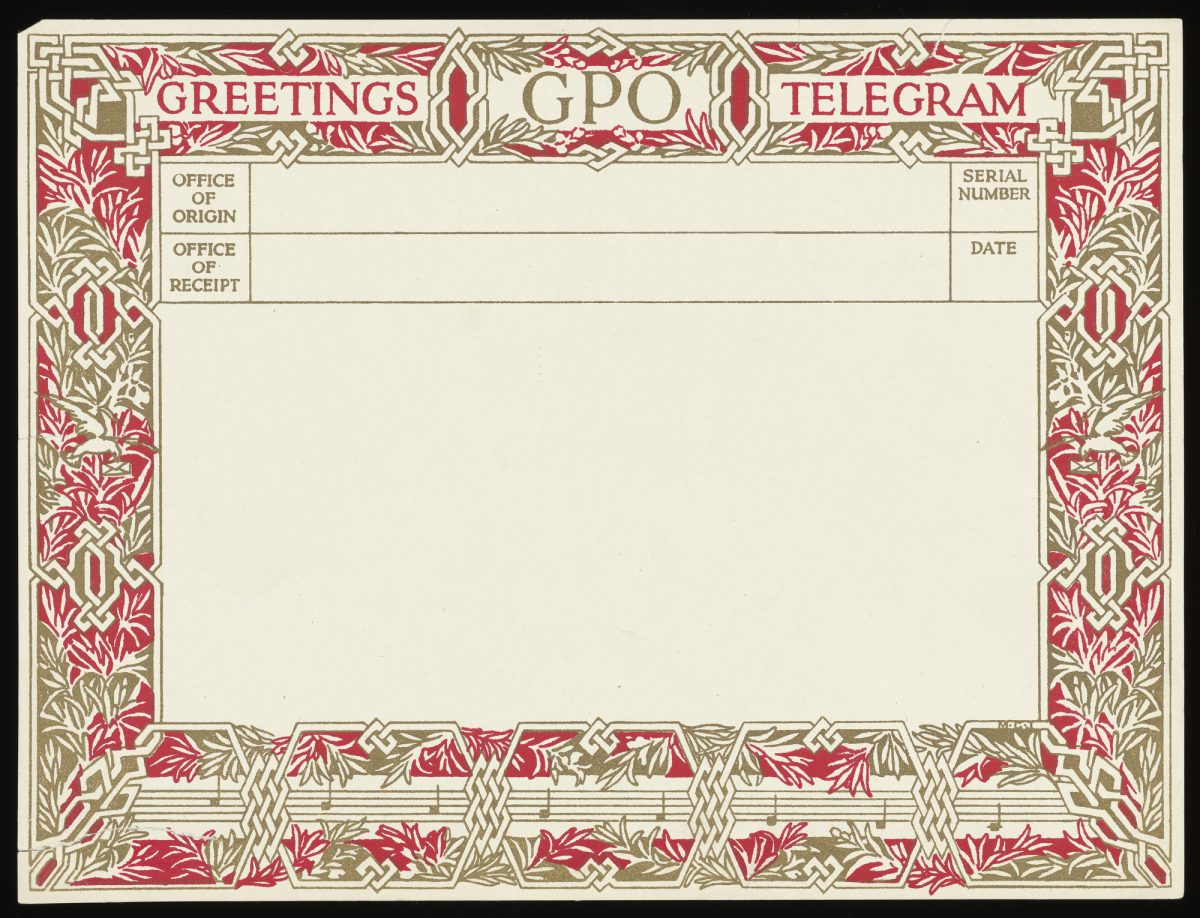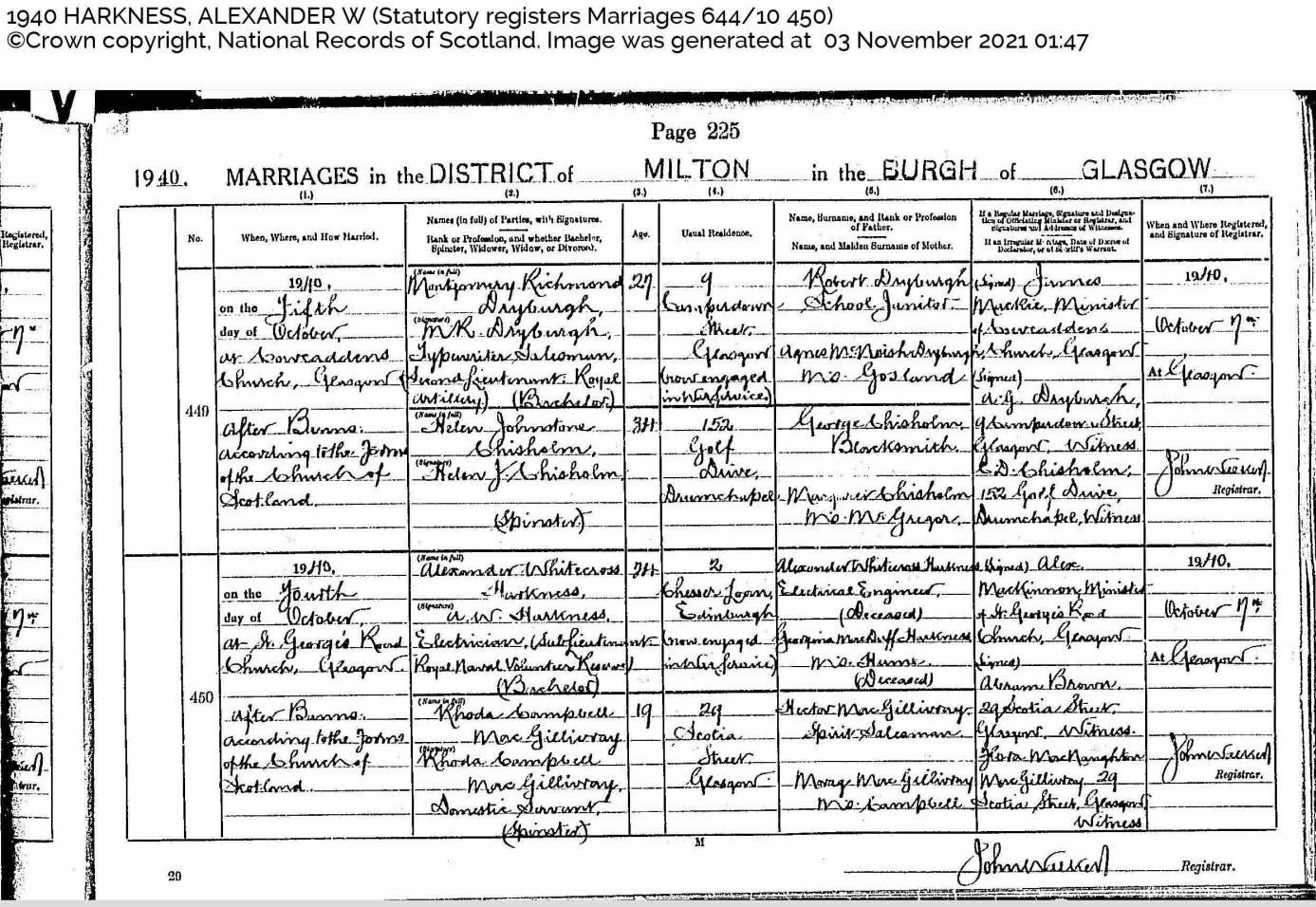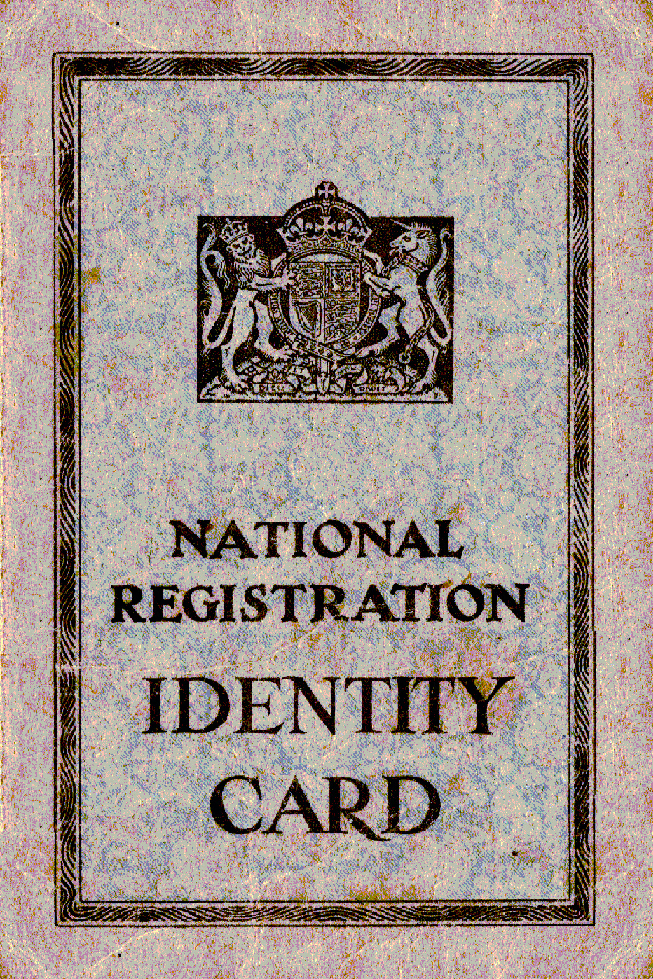My mother kept a number of ‘greetings telegrams’ over the years. These greetings telegrams were attractively designed and were delivered in bright gold envelopes labelled ‘Greetings Telegram’.5 Aside from the creative decorations, the senders often wrote brief witty messages.
As mentioned, my parents married in 1940, five years after the invention of ‘Greetings Telegrams’ (24 July 1935). Thus, they received many greeting telegrams6 at the time; some were from my mother’s friends and family on the Isle of Eigg, and one was from my father’s ‘ship’ “Girl Ethel” that was locked in the Holy Loch, Argyllshire, Scotland.
Captain of the ‘Ship’?
My father met my mother at the Highlanders’ Institute in Glasgow in 1940. He was billeted there, while it was my mother’s workplace. His naval headquarters was in Glasgow (Naval Offices, St. Enoch Hotel); but his naval operations were based in the Holy Loch at the beginning of the war. In other words, he would, on occasion, have to travel to Glasgow; on the other hand, his ‘ship’, ‘the Girl Ethel’, was where he lived and worked (Ardnadam Pier, Sandbank, Argyllshire).
On the ship, he shared living quarters (the stateroom) with his friend and co-officer, Sub Lieutenant Piggott. Being an officer had its perks; thus, he shared sleeping and living quarters with just one naval officer whereas, the rest of the crew had less ‘luxurious’ sleeping quarters.
It goes without saying that living and working close together also fostered friendships. His friend, and co-officer, Sub-Lieutenant Piggott, was also the one who signed the note asking for my father’s ‘compassionate leave’ so he could get married (referred to elsewhere here).
I can’t remember my father talking much about the Second World War, but I remember either him or my mother saying he was a captain of a ship. Of course, these de-gaussing ‘ships’ were more like ‘boats’, as they were not that large. Another thing, is that my brother Gavin has pointed out that Sub-Lieutenant Piggott must have been ‘captain’ of ‘Girl Ethel’, because although he and my father had the same rank (sub-lieutenant), Piggott had more seniority. However, my father also worked on other boats/ships – so the reference to him being ‘captain’ could be correct, but in another context. The documentation is vague here, however.
Friends and relatives on the Isle of Eigg
Although my mother was born in Glasgow, and lived there until she married, it seems many of her friends and family lived on Eigg, because nearly all the ‘wedding congratulations’ telegrams are from Eigg. I have never met any of the people who sent the telegrams. So the information presented here is based on talks with my mother and other sources.
This is interesting in the sense that it is not what is said; it is that which is unsaid that reveals the ‘truth’, as one French philosopher once remarked.7 In this context, why is there not a single telegram from my father’s family and friends in Edinburgh? This might mean that he had lost contact with them, or that he had neglected to cultivate the relationships. Or it’s possible that they did not know his address as he was billeted in various places due to his war service.
Thus, the wedding telegrams give a fairly good indication of my mother’s friends and family in 1940 when she got married. Hence, for this chapter, I will be sharing all the telegrams my mother and father received, and which my mother kept over the years.
The wedding telegrams
The Isle of Eigg:
- Her Auntie Flora.
- Her friends at Shore Cottage
- Mary Bell MacDonald
- Catriona Campbell (the daughter of my mother’s Uncle Donald)
- Sarah MacDonald
- Mary Jean MacDonald
My father’s naval boat:
5 https://www.postalmuseum.org/blog/greetings-from-the-post-office/ Date of reading: 2 Jan. 2021
6 Greetings telegrams were introduced on 24 July 1935. These telegrams were attractively designed and were delivered in bright gold envelopes bearing the words ‘Greetings Telegram’. https://www.postalmuseum.org/blog/greetings-from-the-post-office/ Date of reading: 2 Jan. 2021.
7 “The unsaid is Foucault’s answer to the inevitable fact that language, even considered strictly at the level of statements, may mean more than it says, or may mean different things to different people.” https://www.sparknotes.com/philosophy/arch/section10/page/2/



One Reply to “My Parents’ Telegrams”